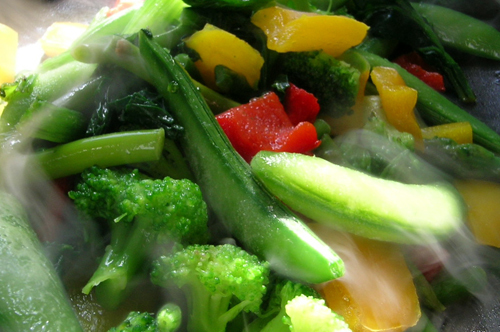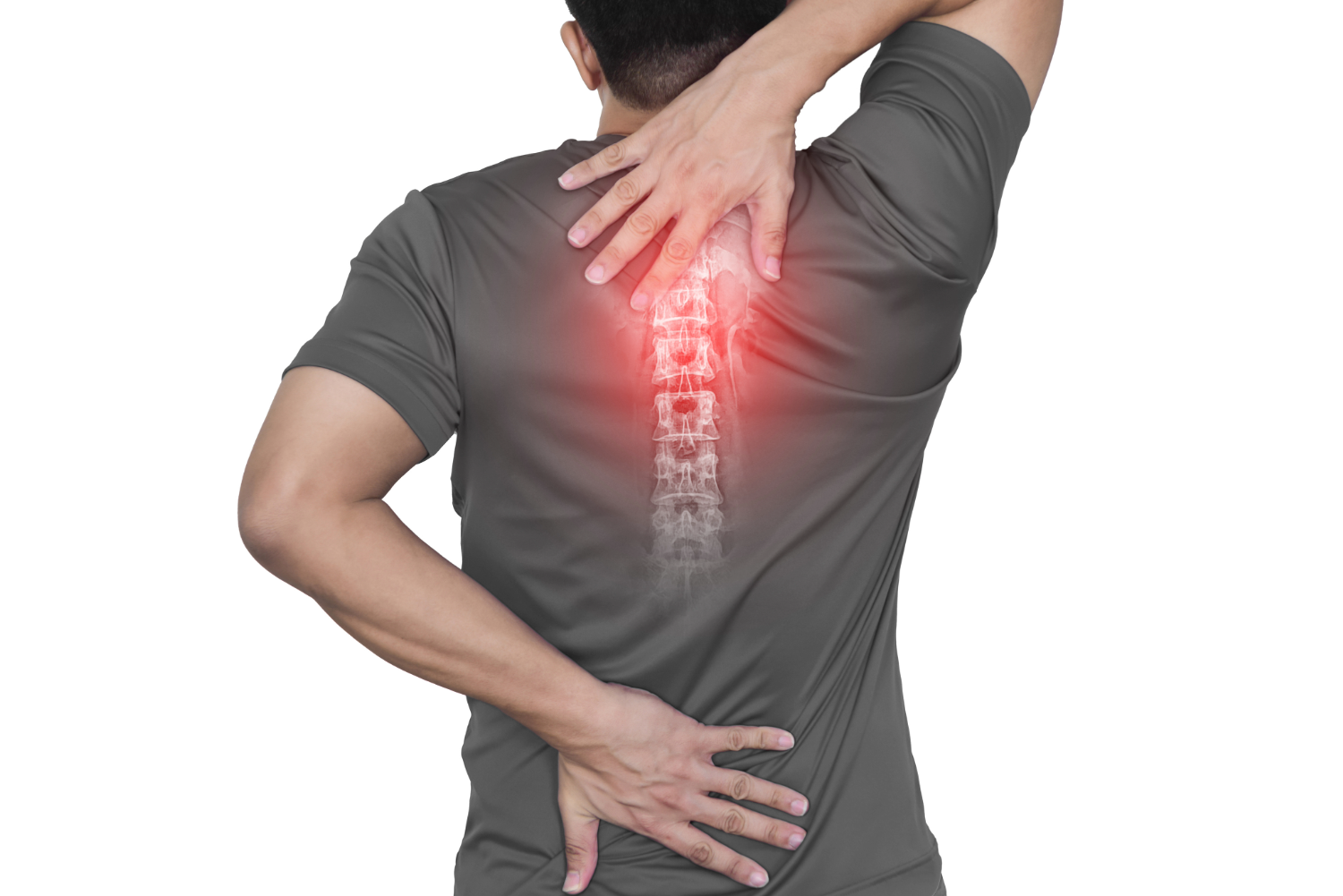News
Super Tips For Superfoods

Yes, Kale and spinach may be two of the most nutrient-dense foods on the planet, but if you don't consume them in a specific way, you risk missing out on some of the most important health benefits - a real shame, especially if you're not Popeye and always craving a big helping of leafy greens. There's a lot of talk about super foods but it's important to know the science behind how to eat certain foods properly in order to extract the most benefit from your meal.
PURÉE YOUR GREENS
The antioxidants and phytonutrients contained in plants exist as particles trapped within the cell walls. The walls must be broken down in order for our bodies to access and absorb these important nutrients, which help protect our cells from the effects of free radicals. Free radicals are thought to play a role in heart disease and cancer, among other health problems. If spinach and kale aren't chewed finely, the only benefit you're likely getting is fiber, says Dr. Dennis Lipton, an internal medicine specialist at Vail Health. "The smaller the particles are that you swallow, the more nutrients you will absorb," Dr. Lipton says.
"That's why I'm such a big fan of smoothies. Chewing green vegetables to the consistency of a purée allows maximum absorption of their nutrients." Make that smoothie even healthier by adding a small amount of fat, in the form of avocado, nuts or nut butter, or even ground flax or hemp seeds.
"Adding a small amount of fat to foods that are packed with fat-soluble vitamins, especially in leafy greens and carrots, can assist with absorption," says Katie Mazzia, a clinical dietitian at Vail Valley Medical Center. Along with adding greens to your smoothies, consider puréeing or blending vegetables into soups or sauces to increase the nutrient availability.
GO FOR STEAMED OR RAW
Besides the fact that crisp vegetables taste better than the mushy variety, there's another big reason to avoid overcooking your carrots, bell peppers, eggplant and the like.
"Boiling or overcooking vegetables can cause significant vitamin losses," Mazzia says.
Dr. Lipton recommends steaming vegetables for 5 to 10 minutes as the best way to cook them without losing vital nutrients. And don't forget to hang out by the fresh veggie tray at your next work party. "Trying to eat half of your vegetables raw is a good goal," he says.
GRIND YOUR SEEDS
Seeds might be small, but they sure can be mighty. Flax seeds, especially, are chock full of micronutrients, dietary fiber, vitamin B-1 and omega-3 essential fatty acids, shown in numerous studies to protect your heart. But if you don't consume them properly, you'll miss out on most everything but the fiber.
"The seeds must be disrupted, or ground, in order to benefit from the lignans and omega-3 fatty acids they contain," Dr. Lipton says. Indeed it's the lignans - a group of chemical compounds also found in pumpkin seeds - that are thought to protect against cardiovascular disease and "prevent pre-cancerous cellular changes," according to a study published in the British Journal of Nutrition.
Mazzia recommends storing ground flax in the fridge or freezer. "The oils break down quickly if left out," she says.
TEA FOR TWO
Tea, be it black, green, white or oolong, is a potent source of polyphenols, antioxidants known to rid the body of cell-damaging free radicals. Black tea with a touch of milk might be a nice treat occasionally, but you're better off skipping the dairy, and not just because of the extra calories you're consuming. There's some evidence suggesting the proteins in the milk bind with the catechins in tea, and it's the catechins that have the most cardiovascular benefits. While you'll still get the antioxidants and flavonoids that are good for your health, you'll miss out on some of the heart healthy benefits. Even so, Mazzia encourages everyone to drink a variety of teas in different ways. Whether it be cold or hot, it is considered a fluid, replacing water and other beverages. Swap afternoon coffee with tea and add a squeeze of lemon or orange for an added Vitamin C boost. "Although evidence is preliminary and ongoing, two to three cups of black or green tea per day may help heart health and reduce your risk of some cancers. More than five cups a day may have more risks than benefits. Also, check with your healthcare provider or pharmacist before drinking green tea if you take prescription medications or are receiving chemotherapy.
TO CHOP OR NOT TO CHOP?
In addition to that apple, a few cloves of garlic a day might just keep a cold at bay. There are a few fruits and vegetables that undergo chemical reactions once they're cut that have an effect on nutrition. Garlic should be cut or chopped up 10-30 minutes prior to consuming; that's because chopping "initiates an enzymatic reaction that creates powerful antioxidants," Dr. Lipton says. No wonder some folks swear by raw, crushed garlic when they feel that trademark tickle in the back of their throat.
Similar enzyme reactions take place when broccoli and other cruciferous vegetables, like cauliflower and kale, are chopped. Once chopped, sulforaphane, a sulfur-containing cancer-fighting antioxidant, is released. The problem is that for broccoli, many types of cooking methods - even the brief flash cooking done before vegetables are frozen - can destroy myrosinase, one of the enzymes needed to produce sulforaphane, so eating cooked broccoli doesn't have quite the same health benefits as raw, Dr. Lipton says. Briefly steam the vegetables, considered a "gentler" heat, to get around this, or add "as little as ¼ teaspoon of mustard powder to your steamed frozen broccoli to boost its sulforaphane content to the level of chopped raw broccoli," Dr. Lipton says.
Just one more thing to consider when it's time to eat those "little trees" your mom always nudged you about. It's not just what you eat, but how you eat it, too.
About Dr. Dennis Lipton - Internal Medicine | (970) 926-6340
Dennis Lipton MD is a board-certified internist trained in the essentials of primary care and disease prevention and can help ensure patients receive the proper medical screening tests and immunizations.
Vail Health Food & Nutrition vailhealth.org/nutrition | (970) 479-5058
More News
-
New!
More

We’ve Got Your Back: A Practical Guide to Improving Spine Health This Winter and Beyond
There’s a reason most of us moved to the Vail Valley — for fresh snow and skiing. But for others, the season also brings an unwelcome guest: back pain. Maybe it shows up after a powder day, or shoveling your driveway after another snowstorm, or it sneaks in midweek. However it arrives, one thing is sure: back pain can derail your winter faster than an overturned semi on I-70 on your way to ski Vail.
-
New!
More

Hormone Replacement Therapy: When and Why to Start
For decades, hormone replacement therapy (HRT) was shrouded in fear. The 2002 Women’s Health Initiative study made headlines for linking HRT to increased health risks, and overnight, millions of women abandoned treatment. But that research, as it turns out, was deeply flawed. In fact, on November 10, 2025, the Food and Drug Administration (FDA) announced that it would begin a process to officially remove black box warnings from HRT. After a comprehensive review of scientific literature and expert input, the agency is urging pharmaceutical companies to make changes to the labeling to provide current, accurate, and balanced information about the benefits and risks of these drugs, so women, in consultation with their healthcare providers, can make the best decisions for their health.
-
New!
More

How Acupuncture Really Works: A Science-Based Perspective
Acupuncture is not “energy medicine,” “woo-woo,” or some mystical practice that requires...





